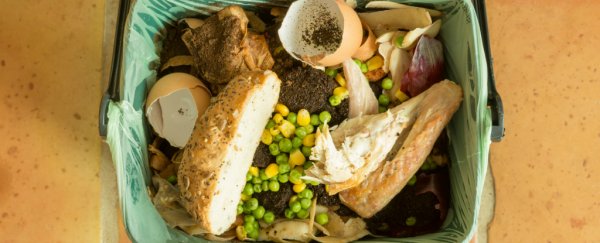Italy is set to become the second European country to put in place legislation that will pressure supermarkets to stop throwing out food waste, and instead give it to those in need.
Last month, France introduced a law that banned supermarkets from throwing out their unsold - but still edible - food, and now a new Italian bill is looking to do the same, by making it a whole lot easier for stores to donate items past their use-by date to charities.
Unlike the French legislation, which issues up to €75,000 (US$83,000) fines for supermarkets that waste food, the Italian model instead rewards companies for donating by reducing their rubbish tax - the more food companies donate, the bigger savings they'll receive. And with many businesses seeing the bottom line as a great incentive than environmental or humanitarian concerns, that's a pretty good incentive.
The government will also make donating easier - right now, Italian supermarkets have to declare any food donations to charity in advance, but under the new bill, they'll only have to fill out a monthly declaration showing how much they donated. The bill is set to pass Italy's lower house with bipartisan support this week, before heading for final approval in the Senate.
"We are making it more convenient for companies to donate than to waste," Italy's Agriculture Minister, Maurizio Martina, told The Local. "We currently recover 550 million tonnes of excess food each year but we want to arrive at one billion in 2016."
Not only is Italy's food waste problem expensive - with estimates it costs the economy to €12 billion (US$13.3 billion) a year - it's also an environmental nightmare.
Precious land, fuel, and water go into growing and processing food - not to mention all the millions of tonnes of plastic and paper used to wrap it - and much of it ends up being sent to landfill while it's still perfectly fine to eat, simply because supermarkets can't sell it past its use-by date. In fact, researchers estimate that, each year, food that's produced but not eaten adds 3.3 billion tonnes of greenhouse gasses to the planet's atmosphere.
That's understandable - after all, companies can't risk giving their customers food poisoning. But use-by dates are vague estimations, and food can often last days, and even weeks, past them - which is terrible when you consider all the people going hungry while food sits rotting in landfill.
But the new Italian bill will aim to reduce that distribution problem. The government is also running a campaign to promote the use of doggy bags in restaurants, to prevent the other half or your lasagne being tossed in the trash.
France and Italy aren't the only countries making an effort, Denmark recently launched the first food waste supermarket, which only sells food past its use-by date. And Obama has set a goal of reducing food waste 50 percent in the US by 2030.
In addition to legislation, scientists are finding ingenious new ways to use technology to stop us throwing out so much food. For example, this anti-bacterial packaging that doubles the shelf-life of food, and this smart packaging that tells you when a product is biologically spoiled, rather than simply past its use-by date.
In the UK, one of the leading supermarkets, Sainsbury's, uses their old food waste to partly power their stores, by getting microbes to break it down and harvesting the energy produced.
The next step will be to not only stop food waste, but to make our products more sustainable in the first place, with inventions like biodegradable food packaging. We're a long way off a waste-free food industry, but it's nice to know that science is working to help us achieve that goal.
